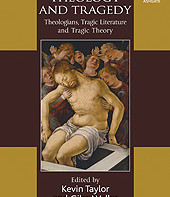Yesterday, Jenn Craft asked, ‘If you are a practicing artist, how might a deepened relationship to place affect your work?’
This question is becoming increasingly important to members of the American theatre community. How important is it that a theatre should tell its local community’s stories, as opposed to those imported from other areas (such as New York City)? How should the members of a theatre company relate to the local community? In this case, ‘place’ is not so much about the landscape, but about the people and the history which belong to a particular location.
Here are several ways in which a relationship to a stable place might affect an actor’s work:
1) Tell the community’s stories. The most powerful theatre, in my experience, comes when the story told is the audience’s story. For example, I once attended a performance of August Wilson’s Gem of the Ocean, one of Wilson’s ten plays which chronicle the African-American experience during each of the decades of the twentieth century. This performance took place at a professional theatre in Baltimore, whose audience, as with most theatres, normally consisted of older upper-middle-class white couples. At this performance, however, about half the audience was African-American. During the second act of the play, the character Aunt Ester takes a young man, Citizen Barlow, on an imaginative journey to the City of Bones, an underwater graveyard of sunken slave ships and the Africans they carried. For the African-Americans in the theatre, the effect was electrifying. Several members of the audience responded vocally, a phenomenon I had previously experienced as an actor performing for Harlem audiences, but which I had never experienced at this theatre.
In this case, place is seen as a possible influence on the choice of stories that a theatre company tells. Baltimore is a majority African-American city, yet most theatre patrons are white. Telling the stories of a local community that is often ignored, especially when that community is in the majority, is one way in which actors can deepen their relationship with their neighbours, and thus with their place.
2) Invite your neighbours in. One theatre in Baltimore began giving away a certain amount of free tickets for each show to residents of the local neighbourhood, which was poor and crime-ridden. The theatre sat within a small arts district, patronised largely by wealthier members of other neighbourhoods who drove in, had dinner and a show, then drove away. By giving away tickets to local residents who might not normally be able to afford them, the theatre said, ‘We want to have a relationship with our neighbours, even if they can’t give us money’.
3) Be a resident company. A resident company is composed of theatre artists who are residents of their local communities. They get to know their audience members at the grocery store, at church, at the baseball game. They are unable to survive as a company if they show disrespect for their audiences, for example by producing shows which are needlessly offensive or which lambast the community’s values. Even when they find fault, they do so as members of the community, not as outsiders, which gives their words added weight.
For a practicing actor, a deepened relationship to place can affect his choice of stories to tell, and the way he interacts with his neighbours outside the context of the performance itself. An increased number of theatre companies which are truly resident in their communities may lead to stronger relationships between actors and audience members, which in turn can lead to more powerful theatre.
For more on theatre in local communities, I recommend Prof Scott Walters of UNC-Asheville’s Center for Rural Arts Development and Leadership Education, and his blog, Theatre Ideas, as invaluable resources.
***
Cole Matson is a Theology finalist at the University of Oxford, and will be starting a PhD in Theology, Imagination and the Arts at St Andrews in September. He previously worked as an actor in Baltimore, and as the office administrator of the Baltimore Theatre Alliance.




